Professor Joseph SLAUGHTER, English and Comparative Literature, Columbia University. "To Live as a Photograph", a chapter for Rights on Paper: Essays on Human Rights, Humanitarianism, and the Humanities. (15 March 2014 to 12 April 2014). E: jrs272@columbia.edu
Dr Ankhi MUKHERJEE, English Language and Literature, University of Oxford. Seminar Slumdog: Psychoanalysis of Poverty in Mumbai and London. (3-17 April 2014). E: ankhi.mukherjee@wadh.ox.ac.uk
A/Professor Maryanne DEVER, School of Humanities and Social Sciences
University of Newcastle, Archive Futures. (25/5 - 16/6, 21/9-3/10, 10/11 - 21/11). E: maryanne.dever@newcastle.edu.au
Dr Thomas BRISTOW, English Literature, University of New England. The Aesthetic Image and the Ontological Status of Seeds. Dates: (31 May 2014 to 30 June 2014). Email: tom.bristow@une.edu.au
Professor Patricia SPYER, Anthropology of Contemporary Indonesia, Leiden University. Visual Cultures of Place-making in a Precarious Age. (7 June - 5 August 2014). E: spyer@fsw.leidenuniv.nl
Professor Richard SHERWIN, Visual Persuasion Program, New York Law School. Visualizing Law in the Digital Age. Dates: (15 June 2014 to 15 July 2014). E: richard.sherwin@nyls.edu
Professor Alison YOUNG, Criminology, University of Melbourne. Image, Affect, and Law. (23 June - 15 July 2014). E: ayoung@unimelb.edu.au
A/Professor Norma MENDOZA-DENTON, Anthropology, University of Arizona. Latina/o Gangs on YouTube: Language, Localism, and Music Fandom in Social Media. Dates: (30 June 2014 to 29 August 2014). E: n.mendozadenton@gmail.com
Dr Victoria DUCKETT, School of Communication & Creative Arts, Deakin University. Polyphony and performance: integrating the theatre into cinema's modernity. Dates: (1-26 July 2014). E: vduckett@unimelb.edu.au
Professor Peter GOODRICH, Law, Cardozo School of Law. Visiocracy. (2-21 July 2014). E: goodrich@yu.edu
Professor Dipesh CHAKRABARTY, Department of History, The University of Chicago. (7 July 2014 to 31 August 2014). E: dchakrab@uchicago.edu
Professor Timothy HITCHCOCK, Eighteenth-Century History, University of Hertfordshire, UK. Voices of Authority, Theatres of Judgement. Dates: (12 July 2014 to 10 September 2014). E: hitchcock.t@gmail.com
Professor Ian CHRISTIE, Film and Media History, Birkbeck College, University of London. 'A New Source of History'? Exploring how digital access to archive film can bridge the credibility gap. (14 July - 8 August 2014). E: ianchristi@gmail.com
Professor Brian REED, English, University of Washington. Conceptual Poetry, Digital Technologies, and the Visibility of Language. Dates: (14 July 2014 to 12 September 2014). E: bmreed@u.washington.edu
Professor Deb VERHOEVEN, School of Communication and Creative Arts, Deakin University. New Cinema History, Cultural Infrastructure and the Computational Turn: Foreign Language Cinema in Australia. (21/7-1/8, 11/8-22/8, 1/9-12/9). E: deb.verhoeven@deakin.edu.au
Dr Michael MACK, English Studies and Medical Humanities, Durham University. Science and Ethics of Literature: Cinema, Neuroscience and the Digital Screen. Dates: (1 August 2014 to 30 September 2014). E: michael.mack@durham.ac.uk
Professor Paul CARTER, Department of Design, RMIT University. Screen Memories: The Digital Design of Place in Alice Springs. (22 September 2014 to 8 November 2014). E: paul.carter@rmit.edu.au
Dr Amanda RAVETZ, Manchester Metropolitan University. Spontaneous drift: theorising place, digital screens and 'potential space'. Dates: (6 October 2014 to 4 December 2014). E: a.ravetz@mmu.ac.uk
VISITING FELLOWS Biographies:
SLAUGHTER, Professor Joseph
Dates: 15 March 2014 to 12 April 2014
Research Project: "Rights on Paper: Essays on Human Rights, Humanitarianism and the Humanities
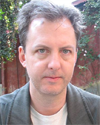
Joseph Slaughter is associate professor of English and Comparative Literature at Columbia University, where he teaches and in the fields of postcolonial literature and theory, African, Caribbean, and Latin American literatures, narrative theory, and human rights. His publications include articles in Alif, Human Rights Quarterly, Research in African Literatures, The Journal of Human Rights, Politics and Culture, Comparative Literature Studies, and PMLA. He is a founding coeditor of Humanity: An International Journal of Human Rights, Humanitarianism, and Development. He is the recipient of a number of prestigious prizes and fellowships, including a Guggenheim Fellowship (2009). His first book, Human Rights, Inc.: The World Novel, Narrative Form, and International Law (Fordham, 2007) was awarded the 2008 René Wellek prize for comparative literature and cultural theory. He is currently completing two books: New Word Orders, on intellectual property and world literature, and Pathetic Fallacies, which revises the standard history of international human rights law by taking account of the roles that colonialism, corporations, and corporate personhood played in the establishment of an international legal order and the juridical categories that later made human rights possible.
SHERWIN, Professor Richard
Dates: 15 June 2014 to 15 July 2014
Research Project: "Visualising Law in the Digital Age
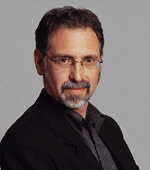
Richard K. Sherwin is Professor of Law and Director of the Visual Persuasion Project at New York Law School. He is the author of Visualizing Law in the Age of the Digital Baroque: Arabesques & Entanglements (Routledge: 2011) and When Law Goes Pop: The Vanishing Line between Law and Popular Culture (University of Chicago Press: 2000 [2002]). He edited and contributed to Popular Culture and Law (Ashgate: 2006) and co-edited (with Anne Wagner) Law, Culture, and Visual Studies (Springer: 2013), for which he also wrote the introduction. He has written numerous chapters and articles on topics ranging from the interrelationship between law and culture, law and rhetoric, discourse theory, semiotics, political legitimacy, and the emerging field of visual legal studies.
In 2001, Professor Sherwin debuted “Visual Persuasion in the Law,” the first course of its kind to teach law students about the role and efficacy (as well as the pitfalls) of using visual evidence and visual advocacy in contemporary legal practice. In 2005, Professor Sherwin launched the Visual Persuasion Project website, which seeks to promote a better understanding of the practice, theory, and teaching of law through the cultivation of critical visual intelligence.
A frequent public speaker both in the United States and abroad, Professor Sherwin is a regular commentator for television, radio, and print media on the relationship between law, culture, film, and digital media.
MUKHERJEE, Professor Ankhi
Dates: 3 April 2014 to 17 April 2014
Research Project: Seminar Slumdog: The Psychoanalysis of Poverty in Mumbai anbd London

Ankhi Mukherjee is an Associate Professor in the English Faculty at the University of Oxford and a Fellow of Wadham College. She teaches Victorian and Modern literature, postcolonial studies, critical theory and intellectual history. Mukherjee’s first book is Aesthetic Hysteria: The Great Neurosis in Victorian Melodrama and Contemporary Fiction (Routledge, 2007). Her second monograph, What Is a Classic? Postcolonial Rewriting and Invention of the Canon, published in 2013 by Stanford University Press, examines the residual influence of the Eurocentric canon on postcolonial and world literatures and emergent formations of canons and classics. Mukherjee has published in international peer-reviewed journals such as PMLA, MLQ, Contemporary Literature, Paragraph, Parallax, and others, and has co-edited A Concise Companion to Psychoanalysis, Literature, and Culture, to be published by Wiley-Blackwell in 2014.
HITCHCOCK, Professor Timothy
Dates: 12 July 2014 to 10 September 2014
Research Project: Voices of Authority, Theatres of Judgement
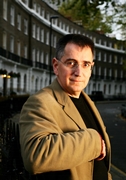
Tim Hitchcock is Professor of Digital History at the University of Sussex. With Robert Shoemaker and others, he is responsible for a series of websites giving direct and searchable access to a series of major collections of primary sources reflecting the social history of Britain, including: The Old Bailey Online (www.oldbaileyonline.org), London Lives (www.londonlives.org), Connected Histories (www.connectedhistories.org), and Locating London’s Past (www.locatinglondon.org).
With degrees from the University of California at Berkeley and Oxford University, he has published books on the histories of eighteenth-century poverty, street life, sexuality and masculinity. His most recent books include Down and Out in Eighteenth-Century London (Hambledon and London, 2004/2007) and with Robert Shoemaker, Tales from the Hanging Court (Hodder Arnold, 2007). With Shoemaker, he has recently completed an interactive e-monograph to be published in 2015 by Cambridge University Press, entitled: London Lives: Poverty, Crime and the Making of a Modern City, 1690-1800. Hitchcock is currently working with Shoemaker, Barry Godfrey, Deborah Oxley, and Hamish Steward-Hamilton on an AHRC funded project, 'The Digital Panopticon', to tie together the records of the Old Bailey with Australian transportation records, and the records of imprisonment in the UK.
Hitchcock grew up in San Francisco and emigrated from the US to Britain in the late 1970s. In 2011, with Shoemaker, he was given the Longman-History Today Trustees Award, for their substantial contributions to history as the ‘directors of the groundbreaking digital projects The Old Bailey Proceedings Online and London Lives.’
DEVER, Professor Maryanne
Dates: 25 May to 21 November 2014
Research Project: Sexing the Archived Page
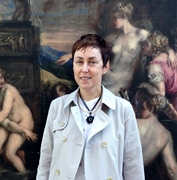
Maryanne Dever is an Associate Professor in the School of Humanities and Social Science at the University of Newcastle, Australia. She was previously Director of the Centre for Women's Studies & Gender Research at Monash University. She has also held posts at the University of Sydney and the University of Hong Kong, as well as visiting appointments at McGill University, University of Ottawa and University College London.
Her current research focuses on the status of archived paper with the advent of digital technologies. This research is centrally concerned with interrogating the relationship between materiality and methodology in archive-centred literary studies. The work engages with emerging debates across the Humanities regarding the character of materiality and matter and joins these to new methodological questions associated with the now well-established “archival turn” across many Humanities disciplines. Among her recent publications is the co-authored book, The Intimate Archive. She also has on-going research interests in the area of gender, work and higher education and has published widely on women's and gender studies. She was President of the Australian Women’s and Gender Studies Association (AWGSA) and has recently been appointed co-editor (with Lisa Adkins) of Australian Feminist Studies.
She is co-convenor (with Linda Morra, Bishops University) of the 'archivefutures' research network. See: http://archivefutures.com/
BRISTOW, Dr Thomas
Dates: 31 May 2014 to 30 June 2014
Research Project:
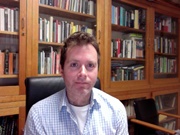
Tom Bristow is delighted to be a visiting fellow in the Humanities Research Centre at ANU. He is mindful of the HRC’s contribution to a number of fields, most significantly the Environmental Humanities. Tom was born in the same year that the HRC was established.
‘The Ontological Status of Seeds’ is an HRC project that Tom has conceived with a view to critiquing digital images of nature as objects within our cultural archive. This research relates to Tom’s interest in seed banks and environmental aesthetics, memory and history. Tom will present initial research findings within a panel titled ‘A Lexicon for the Environmental Humanities’ and during a colloquium on seeds at ‘Affective Habitus: New Environmental Histories of Botany, Zoology and Emotions’ – a conference that he will convene at HRC, June 19-21.
Tom reads English Literature at the University of Leicester and the University of Edinburgh. His principal area of research is the relationship between literature and the environment, with a particular focus on British and North American literature of the twentieth century; an enduring interest in Romanticism is present in his academic publications.
Current projects include: (i) Creative Ecological Investigations – placing artists in herbaria across Australia to interpret scientific data within a post-colonial and climate change context; funded by the Copyright Agency Cultural Fund; (ii) The Cultural Value of Seeds – a project in two parts, investigating colonial relations between Kew Gardens and Australian herbaria, and the tensions between traditional knowledge and intellectual property with respect to seeds and seed banks; funded by the Cooperative Research Centre for Remote Economic Participation; (iii) a monograph: Lyricism in the Anthropocene: Literary Geography and its Ecopoetic Counterpoint, a study of the poetry of Alice Oswald, John Kinsella and John Burnside, to be published by Palgrave MacMillan in 2014; (iv) a children’s book, Our Planet and You: Ecological Algebra, that will be developed as part of a research project into empathy for the more-than-human world, Penguin 2016-17.
Tom is President of the Association for the Study of Literature, Environment and Culture - Australia, New Zealand (ASLEC-ANZ). He is an editor of PAN (Philosophy, Activism, Nature); a board member of the Australasian Consortium of Humanities Research Centres (ACHRC); a contributor to the HfE-Mellon Australian Pacific Observatory in Environmental Humanities, University of Sydney.
After his fellowship at HRC, Tom will join the ‘Shaping the Modern’ programme at the University of Melbourne as a research fellow within the Australian Research Council’s Centre of Excellence for the History of Emotions.
DUCKETT, Dr Victoria
Dates: 1 July 2014 to 26 July2014
Research Project:

Dr Victoria Duckett is Lecturer in Media Studies at Deakin University, Melbourne. Victoria has published extensively in the areas of performance, film and media studies. She is on the steering committee of Women and Film History International, on the editorial board of Nineteenth Century Theatre and Film and has curated films on performance for Cinema Ritrovato, Bologna. In 2013 she was co- convenor of the 7th international Women and Silent Screen conference in Melbourne. She is co-editor of Researching Women in Silent Film: New Findings and Perspectives (University of Bologna, 2013). Her book Performing Passion: Sarah Bernhardt and Silent Film is forthcoming from the University of Illinois Press.
SPYER, Professor Patsy
Dates: 7 June 2014 to 4 August 2014
Research Project: "Visual Cultures of Place-making in a Precarious Age"
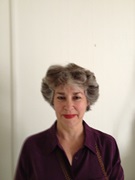
Patricia Spyer (PhD in Anthropology, University of Chicago, 1992) is Chair of Cultural Anthropology of Contemporary Indonesia at Leiden University, was Global Distinguished Professor at New York University’s Center for Religion & Media and Department of Anthropology from 2009-12, and is a Visiting Fellow at the Humanities Research Centre of the ANU in 2014. She is the author of The Memory of Trade: Modernity’s Entanglement on an Eastern Indonesian Island, Duke 2000, editor of Border Fetishisms: Material Objects in Unstable Spaces, Routledge 1998, co-editor of the Handbook of Material Culture, Sage 2013 [2006] and of Images That Move, SAR Press, 2013. She has published, among other topics, on violence, media and visual culture, materiality, and religion. Her current book project Orphaned Landscapes: Violence, Visuality, and the Work of Appearances in Post-Authoritarian Indonesia focuses on the mediations of violence and post-violence in the religiously inflected conflict in the Moluccas, Indonesia. She is on the board of the Prince Claus Fund, a member of the Advisory Council of the Wenner-Gren Foundation for Anthropological Research, and an editorial board member of the Annual Review of Anthropology.
YOUNG, Professor Alison
Dates: 24 June 2014 to 15 July 2014
Research Project: Image, Affect and Law

Alison Young is a Professor of Criminology in the School of Social and Political Sciences at the University of Melbourne. She is also an Adjunct professor at Griffith Law School and an Honorary Professor at the City Law School, London. She is the author of Street Art, Public City (2013), The Scene of Violence (2010), Street/Studio (2010), Judging the Image (2005) and Imagining Crime (1996), as well as numerous articles on the intersections of law, crime and culture. Her key research areas are law, art and public culture; cinema and crime; and image studies generally. She is completing an ARC Discovery Project examining the reception of street art in the cultural field, focusing upon its transformative potential in urban space; its reception and interpretation in the domain of fine arts; its impact upon the socio-legal regulation of public spaces.
MENDOZA-DENTON, Assoc. Professor Norma
Dates: 30 June 2014 to 29 August 2014
Research Project:
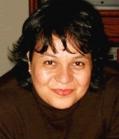
Dr. Norma Mendoza-Denton is a Professor in the Department of Anthropology at University of California at Los Angeles. She recently moved from an appointment as Professor in Anthropology and Linguistics at the University of Arizona - Tucson. Her interests include language, gesture, migration, youth subcultures, political dissent, gangs, and audiovisual approaches to ethnography. Her latest book is entitled Homegirls: Language and Cultural Practice among Latina Youth in Gangs (Wiley Blackwell 2008).
GOODRICH, Professor Peter
Dates: 2 July 2014 to 21 July 2014
Research Project: "Visiocracy"
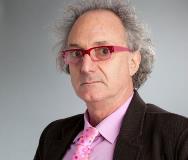
Professor Goodrich was the founding dean of the Department of Law, Birkbeck College, University of London, where he was also the Corporation of London Professor of Law. He has written extensively in legal history and theory, law and literature and semiotics and has authored 12 books. He is managing editor of Law and Literature, and was the founding editor of Law and Critique. His most recent book is Legal Emblems and the Art of Law (Cambridge University Press, 2013); and to this coruscating and lucifugous erudition can be added co-writing and co-producing the award winning documentary Auf Wiedersehen: 'Til We Meet Again (Diskin Films, 2012).
REED, Professor Brian
Dates: 14 July 2014 to 12 Sept 2014
Research Project: Conceptual Poetry, Digital Tecnologies, and the Visibility of Language

Brian Reed is a professor of English and Comparative Literature at the University of Washington, Seattle. A recipient of the Rhodes and Fulbright Scholarships, he has written three books—Hart Crane: After His Lights (2006), Phenomenal Reading: Essays on Modern and Contemporary Poetics (2012), and Nobody’s Business: Twenty-First Century Avant-Garde Poetics (2013)—and co-edited two essay collections, Situating El Lissitzky: Vitebsk, Berlin, Moscow (2003) and Modern American Poetry: Points of Contact (2013). His digital projects have included Shakespeare Tweeted Daily, a reinvention of Shakespeare’s sonnets, and Professor Reed Recommends, a Tumblr-based illustrated pedagogical essay. A new book, A Mine of Intersections: Writing the History of Contemporary American Poetry, is forthcoming in 2015.
CHRISTIE, Professor Ian
Dates: 14 July 2014 to 28 July 2014
Research Project:

Ian Christie is a film historian, curator, broadcaster and consultant.
A Fellow of the British Academy, he is Professor of Film and Media History at Birkbeck College, director of the London Screen Study Collection and was President of Europa-Cinemas, of which he was a co-founder, in 2012-13.
He was a founder-member of London’s Screen Archives: the Regional Network (a network of all archives in London holding film, functioning as a ‘regional archive’ for the London region) and has been director of the London Screen Study Collection at Birkbeck College since 2007. He was a member of the Screen Heritage UK Programme Board, responsible for overseeing spending of UK Govt £25m grant to preserve and develop UK audiovisual archives (2008-12); and of Screen Heritage regional board (Revitalising the Regions), responsible for overseeing expenditure on regional film archives (2009-12).
He is a contributor to ‘restored’ editions of historic films on video (e.g. The Life and Death of Colonel Blimp; The Edge of the World; The Red Shoes,The Man in the White Suit, It Always Rains on Sunday, The Story of the Kelly Gang, etc) and has worked with the Film Foundation, writing about the restoration of The Red Shoes for its Cannes premiere, and promoting the cause of restoration for BFI with Martin Scorsese and Thelma Schoonmaker.
He has written and edited books on Powell and Pressburger, Russian cinema, Scorsese and Gilliam; and contributed to exhibitions ranging from Film as Film (Hayward, 1979) to Modernism: Designing a New World (V&A, 2006). Since the 1980s he has presented many Russian film seasons and events, interviewing Andrey Tarkovsky at the NFT/BFI Southbank in 1981 and Alexander Sokurov in 2011. In 2006 he was Slade Professor of Fine Art at Cambridge University, with a series of lectures entitled ‘The Cinema Has Not Yet Been Invented’.
Recent publications include: Audiences (editor, Amsterdam University Press, 2012) Stories we Tell Ourselves: the Cultural Impact of British Film 1946-2006 (co-author, for UK Film Council, 2009) and The Art of Film: John Box and Production Design (2009). www.ianchristie.org
VERHOEVAN, Professor Deb Dates: 21 July 2014 to 12 September 2014
Research Project:

Deb Verhoeven is Professor and Chair of Media and Communication at Deakin University and Deputy Director of the Centre for Memory, Imagination and Invention. Professor Verhoeven is a leading proponent of the Digital Humanities in Australia, and is the Project Director of Humanities Networked Infrastructure (HuNI), a two-year project funded by NeCTAR (National eResearch Collaboration Tools and Resources). She served as inaugural Deputy Chair of the National Film and Sound Archive of Australia (2008-2011) and as CEO of the Australian Film Institute (2000-2002). She holds current appointments on the Find and Connect Web Resource Advisory Committee (Department of Families, Housing, Community Services and Indigenous Affairs), the executive of the Australasian Association of the Digital Humanities (aaDH) and the Tasmanian Government’s Digital Futures Advisory Council. She is Chair of the 2015 Digital Humanities conference Programming Committee.
MACK, Professor Michael
Dates: 1 August 2014 to 30 September 2014
Research Project:

Michael Mack (PhD. Cambridge) is Visiting Fellow at Australian National University's Humanities Research Center and Reader in English Literature at Durham University, UK. Formerly he has been a Visiting Professor at Syracuse University, a Fellow at the University of Sydney, and lecturer and research fellow at the University of Chicago. He is the author of over forty peer-reviewed articles and the following books: Philosophy and Literature in Times of Crisis: Challenging our Infatuation with Numbers (Bloomsbury, 2014), How Literature Changes the Way We Think (Bloomsbury, 2012), Spinoza and the Specters of Modernity (Bloomsbury, 2010), German Idealism and the Jew (University of Chicago Press, 2003), and Anthropology as Memory (de Gruyter, 2001, Conditio Judaica Series).
RAVETZ, Dr Amanda
Dates: 6 October 2014 to 4 December 2014
Research Project:

Amanda Ravetz is a visual anthropologist with research interests and expertise in the interdisciplinary connections between anthropology and art/design; the theories and practices of observational cinema; and artist's development.
In 2012 Amanda was SAR Fellow at the National Film and Sound Archive, Australia.
Her most recent book Collaboration Through Craft (2013), an edited volume with Alice Kettle and Helen Felcey, offers a challenging new argument for the collaborative power of craft, analysing the philosophies, politics and practicalities of collaborative craft work. Observational Cinema: Anthropology, Film, and the Exploration of Social Life (with Anna Grimshaw), was published by Indiana University Press in 2009. Her edited volume with Anna Grimshaw, Visualizing Anthropology was published by Intellect Books in 2005 and investigates new collaborative possibilities between anthropology and other fields, linked to image-based work. Amanda's films have been screened in the UK, Finland, Latvia, Portugal, Germany, Majorca, USA and India.
Current research interests include expanded notions of drawing in relation to film; artistic epistemologies; improvisation, play and reverie in art and anthropology; and ontologies of creativity.
CARTER, Professor Paul
Dates: 22 September 2014 to 8 November 2014
Research Project:

Professor Paul Carter is an internationally acclaimed artist and academic. Paul has theorised creative research practice and mentors in this area. His research interests include: the poetics of place-making, public space design and the application of creative research to community renewal, strategic planning and policy formation. In 2004 he published Material Thinking which became a seminal book on the theory and practice of creative research. In 2008 he followed this up with Dark Writing: performance, geography, design which extends creative research theory and practice into the domain of planning.
Well known for publications such as The Road to Botany Bay and his public artwork Nearamnew at Federation Square, Paul characterises his current research portfolio as three concentric rings that have at their heart the challenge of defining and designing ambience:
•Creative Region is a constellation of creative place-making projects located in Victorian’s Western District;
•Turbulence is a project based exploration of the complex interplay between crowd behaviour and physical setting and program; and
•Archipelago (also project based) explores the scope of design to broker new creative communities internationally whose shared goal is the development of design tools to sustain fragile environments and advocate their values.